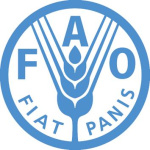- Industry: Agriculture
- Number of terms: 87409
- Number of blossaries: 0
- Company Profile:
Established in October 1945 with the objective of eliminating hunger and improving nutrition and standards of living by increasing agricultural productivity, FAO coordinates the efforts of governments and technical agencies in programs for developing agriculture, forestry, fisheries, and land and ...
Enzyme that catalyses the transfer of a group of atoms from one molecule to another.
Industry:Biotechnology
Enzyme used to control food texture, flavour, appearance and, to a certain extent, nutritional value. Amylases break down complex polysaccharides to simplex sugars; proteases tenderize meat proteins. Biotechnology can assist the development of new food enzymes by finding or engineering enzymes which fit better with the other processes which the food must undergo, like cooking or canning.
Industry:Biotechnology
Enzymes that catalyse the interconversion of the two sugars, glucose and fructose. As fructose is chemically more stable than glucose, a mixture of glucose and fructose with the enzyme will end up almost entirely as fructose. This is valuable for the food industry, as fructose is substantially sweeter than glucose, and so more sweetness per gram is achieved using fructose. The usual use for glucose isomerase is to take glucose made by hydrolysis of corn starch and turn it into a mixture of mostly fructose with some glucose. The corn starch is broken down using amylases. The result is called high-fructose corn syrup (HFCS). Invertase takes sucrose and turns it into glucose and fructose.
Industry:Biotechnology
Enzymes that catalyse the interconversion of the two sugars, glucose and fructose. As fructose is chemically more stable than glucose, a mixture of glucose and fructose with the enzyme will end up almost entirely as fructose. This is valuable for the food industry, as fructose is substantially sweeter than glucose, and so more sweetness per gram is achieved using fructose. The usual use for glucose isomerase is to take glucose made by hydrolysis of corn starch and turn it into a mixture of mostly fructose with some glucose. The corn starch is broken down using amylases. The result is called high-fructose corn syrup (HFCS). Invertase takes sucrose and turns it into glucose and fructose.
Industry:Biotechnology
Enzymes which break down lipids into their component fatty acid and "head group" moieties. The lipases used in biotechnology are almost invariably digestive lipases, meant to break down the fats in food. They can be used to break down complex fats into their components, which are then used to make other materials.
Industry:Biotechnology
Epigenetic or genetic changes, sometimes expressed as a new trait, resulting from <i>in vitro</i> culture of higher plants.
Industry:Biotechnology
Expression of a trait in only one sex; e.g., milk production in mammals; egg production in chickens.
Industry:Biotechnology
